#king umberto i
Explore tagged Tumblr posts
Text

Pizza, a meal fit for a queen!
🇮🇹🍕👑
#history#pizza#raffaele esposito#margherita pizza#italy#food history#1700s#naples#queen margherita#historical figures#italian history#italian food#king umberto i#delicious#queencore#womens history#food#historical women#royalty#1800s#italian culture#traditional food#nickys facts
6 notes
·
View notes
Text
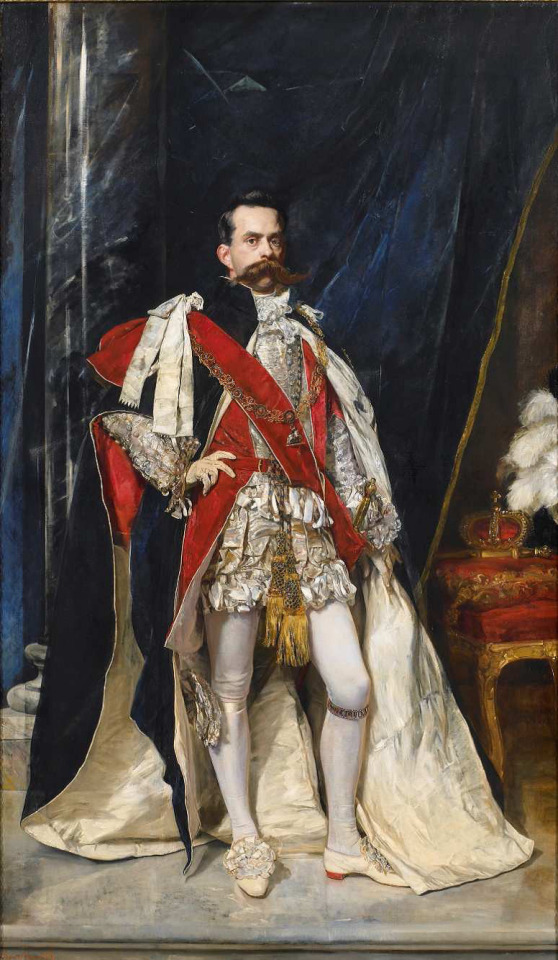
King Umberto I of Italy in the regalia of the Order of the Garter. By Pedro Américo.
#pedro americo#king umberto I#re D'Italia#king of italy#casa savoia#pedro américo#pornstache#regno d'italia#house of savoy#full length portrait#kingdom of italy#umberto i#full-length portrait#Pedro Américo de Figueiredo e Mello#re umberto I
3 notes
·
View notes
Text

King Umberto I when Prince of Piedmont. By Paolo Bacchetti.
11 notes
·
View notes
Text
The actual consideration of what fascism is is rather something of general import. A number of folks here have deferred to Umberto Eco's Ur-Fascism, and while I wouldn't discourage it, it is a text from the perspective of semiotics; that is to say, from the perspective of what signifies fascism, not what it is per se. Hence also why Eco emphasizes that none of the fourteen ways he describes are strictly necessary or sufficient for fascism, just that fascism as it has emerges coalesces around such signifiers. The aesthetics and rhetoric of fascists is rather succinctly summed up in Ur-Fascism, but what fascism is in a more direct, structural sense is a somewhat different consideration.
The governing structure of fascist Italy, as an example, retained many of the facets of the liberal democratic system from which it emerged, with a legislature, a judiciary, and an executive. Mussolini was legally the prime minister- though he adopted the title of Duce, literally "leader"- and was appointed by a legislative council- though a new one created by the fascist party called the Grand Council of Fascism that by and large excluded the previous legislature- and the prime minister could legally be dismissed by the head of state, the king, after a sustained vote of no confidence similar to the UK's formulation. Fascist Italy also redoubled- rather than invented- Italian colonial policy, promoting the settlement of Italians into Libya and other African colonial projects and the genocide of local populations. The domestic economic policy of fascist Italy was also much more explicitly in the interests of private business: in 1939, the whole of Italy was explicitly proposed to be legally divided into 22 corporations which appointed members to parliament; labour organization outside of the appointed corporate structures and striking as a practice were banned. The interests of fascist Italy's ruling bodies was very overtly bourgeois, and their economic policy is often referred to as specifically corporatist.
Nazi Germany was similar in structure, though while the German parliament- called the Reichstag- was maintained, a series of laws were passed which enabled the Chancellor- Hitler, who was appointed such by President Hindenburg- and the cabinet to implement laws without parliamentary or presidential approval. The Hitler cabinet is generally considered to have been the defacto ruling body of Nazi Germany, though members of the Reichstag obviously still convened and drafted laws and ran elections and generally supported Nazi rule and the judiciary remained a distinct body. The Nazis also wanted to redouble their colonial policy in specifically Africa- a theatre in which they were snubbed compared to other European powers- but were by and large unable to secure resources there for continued expansion due to the British opposing them in protecting its own colonial projects. A rather infamous and demonstrative guiding principle of Nazi economic policy, Lebensraum- literally "living space"- sought specifically to appropriate land and other productive capital to give to Germans that they might be made petite bourgeois and small artisans; de-proletarianized and bourgeoisified, at the same time that the people such capital is expropriated from were made slaves to fuel further expansion or killed outright. This was imposed both within and, once the resources of social underclasses at home ran dry, without. The interests too of Germany's ruling bodies was very overtly bourgeois.
What all of this is to say is primarily that fascism as a governmental system is a legal permutation of liberal democracy, rather than a strict departure from it. The overriding interests of fascist states are also commensurately the interests of the bourgeoisie of those nations. It's an entirely logical progression of liberalism, to be frank, and a rather stark example of why liberal states should be opposed. The most violent fascist policy at home is often simply what liberal states have as their explicit foreign policy, for instance. As for whether this or the other politician in a liberal democracy is a fascist, I'd ask first and foremost that it be known that the Nazi policy of expansion was based first on the US policy of expansion; the cart isn't pulling the horse, as it were.
517 notes
·
View notes
Text
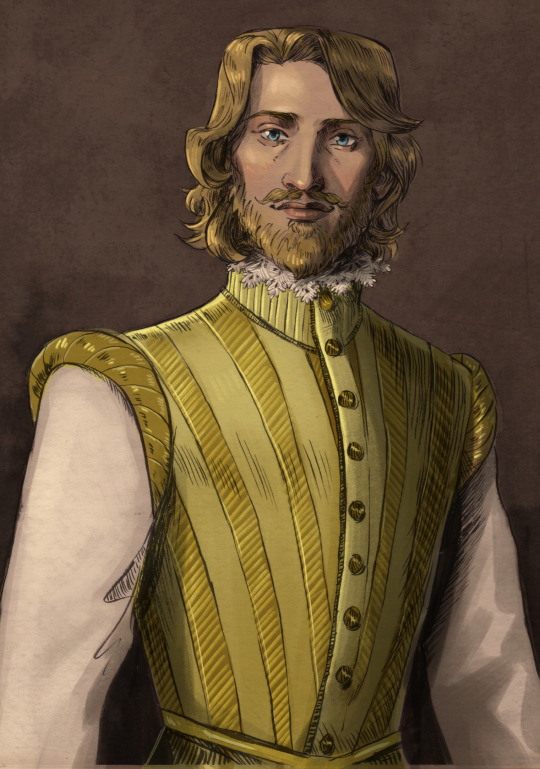
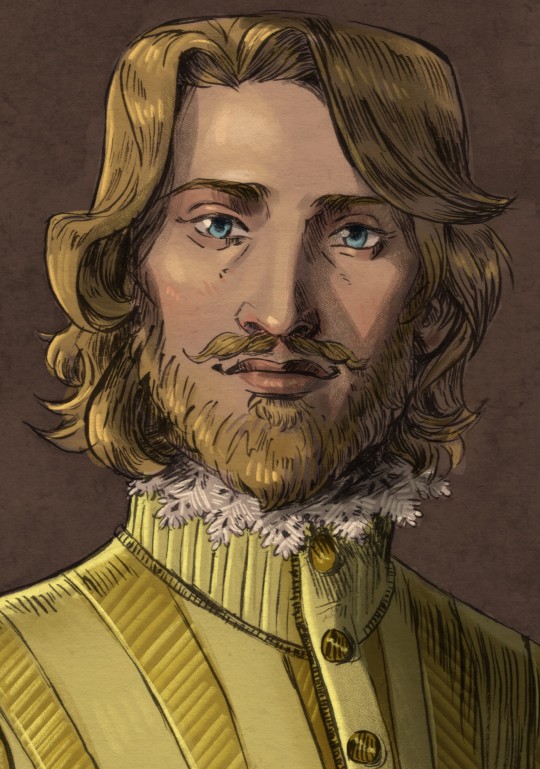
[ID in alt text]
I picked Tary for my pfp on Beacon and I really felt like drawing him <3 I used the painting of King Umberto II of Italy (under the cut) as reference - wanted it to look like a stately kinda portrait!
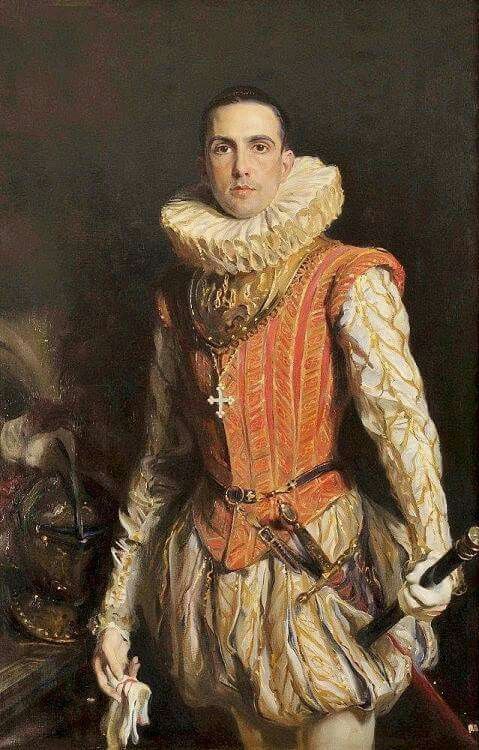
[portrait of King Umberto II of Italy by Philip de László - ID in alt text]
588 notes
·
View notes
Text

22.12.2024 , Sunday
my physics exam didn't go well at all , actually yesterday sucked , the teachers didn't let us leave after our exams and we had to wait a long time, there were other things as well, just a bad day
Well tomorrow is my English exam!! I'm usually very excited for english because it's a relatively easy subject and actually quite interesting
It's just very..very lengthy.. literally.. I'm usually writing until the last second and my hands are cramping
I hope I'm able to manage the time well :))
I have gone over the writing format and I have to read a few chapters
Here's all that I need to do
the rattrap - selma lagerlöf
The interview - Christopher Silvester and Umberto Eco
Indigo - Louis Fischer
Poets and pancakes - asokamittran
Memories of childhood - zitkala-sa , bama
Tiger king - kalki
Journey to the end of the earth - tishani doshi
Aunt Jennifer's tigers - Adrienne rich
whew , I hope tomorrow doesn't suck , I'm able to finish all the questions and they let me leave after the exam!!!!!
Wish me luck!! (pray for me y'all) 🩷🩷🐝
#chaotic academia#girlblogging#dark academia#study blog#coquette#girlblogger#studyblr#light academia#student blog#student life#indian studyblr#all night study#study motivation#studystudystudy#pre boards#fuck exams#final exams#exampreparation#exam season#studyspo#study aesthetic#wish me luck#wish me mell#wish me luuuuck#pray for me
32 notes
·
View notes
Note
hello! congrats on reaching 55 books read this year!! I stopped at a measly 19, 7 of which is read this past week to try and catch up 🤡
some weeks ago you made a post about liking intricate plot heavy works. this ask is very late (apologies, holiday madness got to me) but do you have any recs? I'm thinking of starting the new year with a list of 20 books I want to read, and complex plots are right up my alley. 🌼
at the time i was talking about complex plots in fanfiction lmao but here are some novels that are heavier on plot that i’ve enjoyed:
witch king, martha k. wells (fantasy; warring factions in a world with several different types of power and magic)
the name of the rose, umberto eco (historical fiction, translated from italian; murder mystery in a 14th century monastery)
lincoln in the bardo, george saunders (experimental historical fiction; set during the civil war)
a canticle for leibowitz, walter m. miller jr. (sci-fi; a monastery in a post-apocalyptic future)
ancillary justice, ann leckie (sci-fi; spaceships are sentient beings inhabiting thousands of bodies; this is the first book of a trilogy)
i hope some of these look compelling! happy reading!
21 notes
·
View notes
Note
Hi, i'm sorry this is so out of the blue but would you mind sharing sadomasochistic literature recs pls? I love your other rec lists<33
yo not out of the blue at all. i realise i post a lot of content related to sm.
for fiction: besides the obvious bataille, you should look into colette peignot's collected writings under the name laure.
for some rewritten material on her there's kathy acker's my mother demonology. but everything by kathy acker relates to the subject: blood and guts in highschool, empire of the senseless.
(sidenote from an interview w kris kraus on her biography: According to Eleanor Antin, Kathy worked at a massage parlor in Solana Beach for a while, and she did not give massages. [...] She was also, at the same time, tutoring Latin. / If she didn’t give massages, what did she do? / Well, hand jobs, probably.)
another classic but story of o written by pauline réage plus its beautiful illustrations by leonor fini. it's actually said her fantastical owl masks inspired the character of o + she was really close to andré pieyre de mandiargues, whose one story la marge was adapted by walerian borowczky in immoral tales. then there's sacher masoch's venus in furs. you've probably already heard of anais nin's delta of venus.
i specifically highly rec mary gaitskill. bad behaviour is a great short story collection - one of the stories specifically inspired the film secretary (2002). her essay, the trouble with following the rules, on rape culture and agency published in harper's bazaar (later repub in somebody with a little hammer) is one rare occurrence of nuance and grace accorded to women who've had sexual experiences that are difficult to categorise. it gives a rundown of the ways she personally relates to feminist scholars on the subject too.
there's problems by jade sharma. for a more modern story of the eye, try ryu murakami's ecstasy.
for non-fiction (disclaimer that i mostly haven't read these but they are on my list):
gilles deleuze, masochism: coldness and cruelty ; avgi saketopoulou, sexuality beyond consent ; virginie despentes, king kong theory
if you're similarly interested in boundary-pushing experiences, the limits of the body, attraction to the horrific (i getchu) this is moreso sociology, aesthetics, psychoanalysis focused:
elaine scarry, the body in pain ; anne dufourmantelle, in praise of risk ; sylvère lotringer, overexposed: perverting perversions ; umberto eco, on ugliness
other media: the podcast drunk church, the director catherine breillat.
hope this is of help & if you read anything tell me how it went. i'm always looking for more stuff on the subject too.
285 notes
·
View notes
Note
uhm hi. idk if you got asked this but have you made like a best books of 2023 list? i’d love to read it. have a nice day!
i didn't but i can whip a quick list together for you now:
italo calvino, if on a winter's night a traveller
italo calvino, invisible cities
susanna clarke, jonathan strange and mr. norrell
dennis cooper, the sluts
umberto eco, the name of the rose
franco fortini, the dogs of the sinai
pedro lemebel, my tender matador
vladimir mayakovsky, volodya: selected works
sayaka murata, earthlings
orhan pamuk, my name is red
t.h. white, the once and future king
vincent woodard, the delectable negro: homoeroticism and human consumption within US slave culture
117 notes
·
View notes
Text
"Ancient World Fantasy" Reading List
(A little context to start. If you just want book recs, scroll on down to the first image.)
As I’ve been getting into RuneQuest (Wikipedia link), one striking component of the culture and community surrounding the game is that they’re very into the lore of its fictional world, Glorantha. I’m saying this as a comparison to a game like D&D, where the game is spread across tons of settings with no real sense of obligation to keep things in line with earlier editions.
Glorantha’s canon and worldbuilding has been going on since it was published in 1978 without, as far as I can tell, any big reboots. Which means that, unlike D&D, where people are bringing in all kinds of influences and doing direct adaptions of Jane Austen books and whatever, the RuneQuest game remains pretty tightly tied to the original setting. (There have been some exceptions. But not many!)
But since I run games for people who have ADHD or aren’t interested in studying up, I’ve been looking at all kinds of inspiration to drop into the game. Here are 20 novels that are roughly “ancient world” or “Bronze Age” like RuneQuest and deal with people interacting with strange gods, tight communities, and a world without fast overland travel or transferal of information.
I’m presenting them alphabetically by author’s last name.
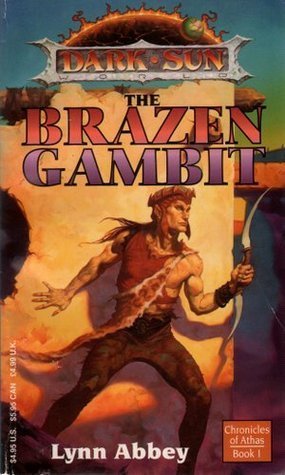
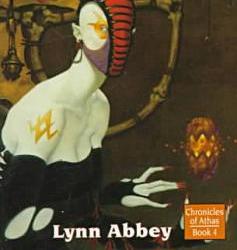
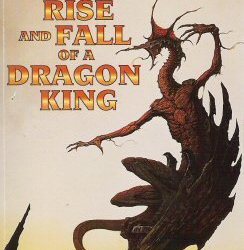
The Brazen Gambit, Cinnabar Shadows, The Rise and Fall of a Dragon King by Lynn Abbey
I'm sorry for starting this post off with licensed RPG novels, but these are good! And I don't mean "good for licensed RPG novels." I've read tons of them, and most are so bad! But these are actually fun. Good character development in a sword-and-sorcery world. It's also an ecological apocalypse world, with godlike beings oppressing common folks, leading to a lack of technological advancement and knowledge of the past.
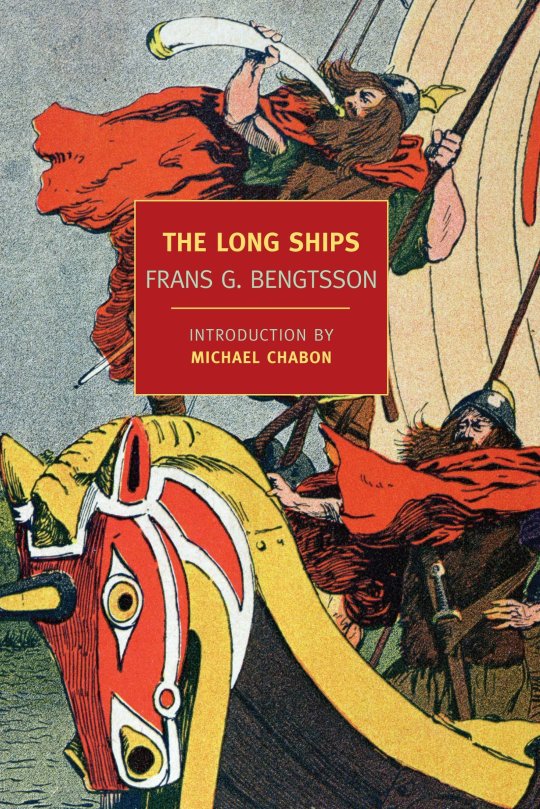
The Long Ships by Frans G. Bentsson
Written in the 1940s as a series of novellas, these stories take you on a tour of the Viking-era world, from Europe to the Middle East and beyond. Like a bunch of books on this list, this places them post-Bronze Age, so they're not officially "ancient world." But it gives a big spread of cultures, from the more clan-based Vikings to the bustling metropolises of Turkey. And it doesn't place any of them on any kind of linear advancement scale or whatever other gross way people "rate" cultures.
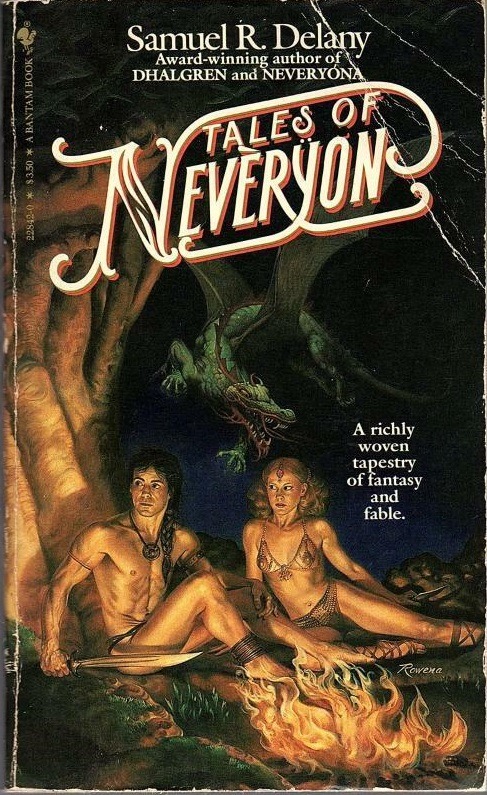
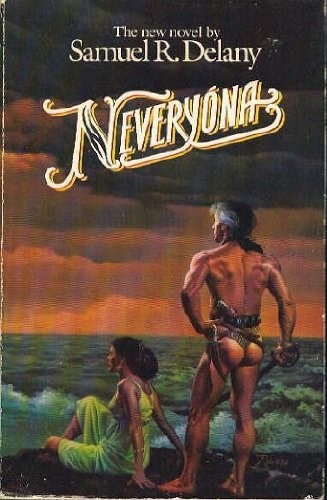
Tales of Nevèrÿon and Neveryóna by Samuel R. Delany
The master of weird sci-fi and gay historical novels, Chip Delany also wrote a fantasy epic. And it rules! Set on pre-historical(ish) Earth, these books describe the stories that maybe inform the myths we tell today? Dragons and slave revolts! A sort of "What if Game of Thrones was good?" series. Lots of good stuff about how people learn and how understanding expands.
I'm not listing the third book only because it's also a historical look at New York during the AIDS epidemic. It's an amazing book! But it strays from the "ancient world" aesthetic.
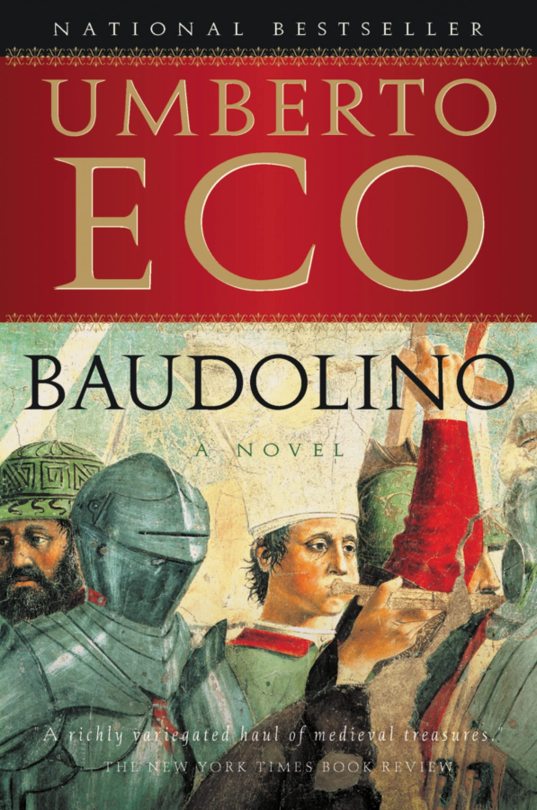
Baudolino by Umberto Eco
Another novel expressly set after the Bronze Age (this one starts in the 12th century). BUT it's about Medieval people's interaction with the knowledge they inherited from the past, specifically the myth of Prester John and the works of Herodotus.
I think I keep putting books like this on the list because roleplaying in a fantastical ancient world is not too far off from how Medieval people might have worshipped and referenced works from ancient Rome and non-European places.
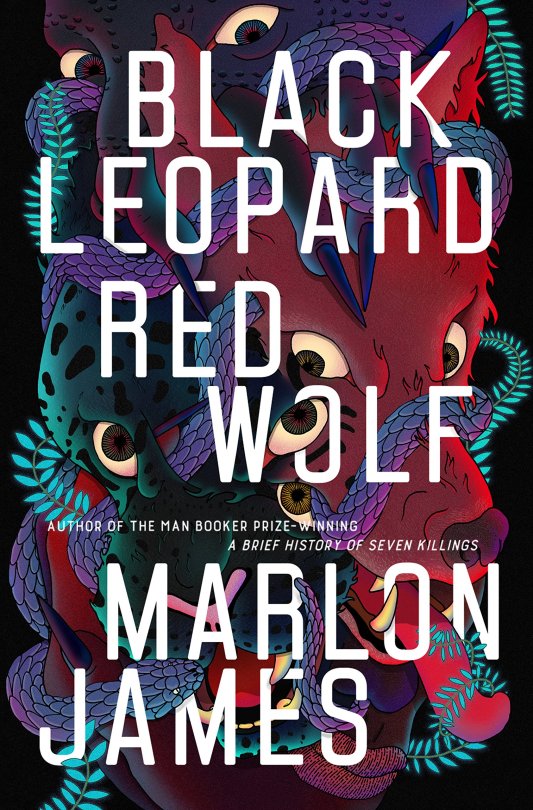
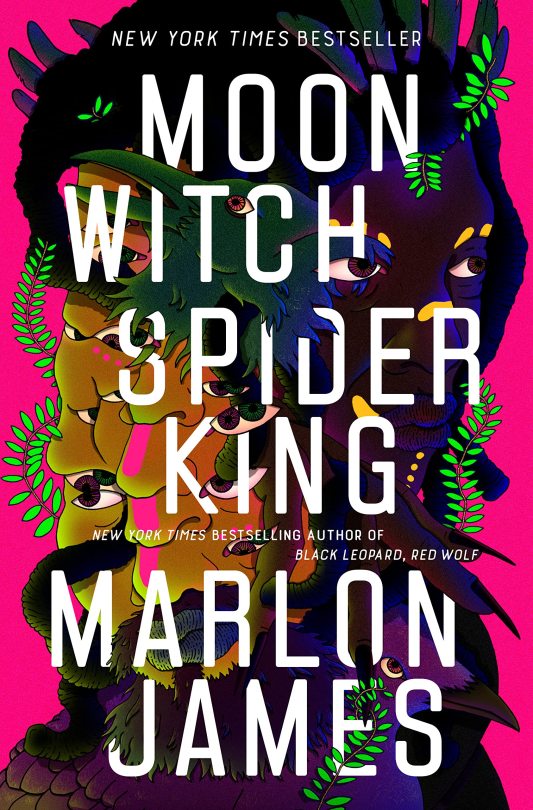
Black Leopard, Red Wolf and Moon Witch, Spider King by Marlon James
One of our best living writers! These are fantasy novels expressly set in a fantastical version of ancient/Medieval Africa. The books explore the same events from multiple points of view and are full of cool magic, awesome spirit combat, and a vast number of places and cultures that actively deconstructs most games's portrayal of fantasy Africa as a homogeneous place.
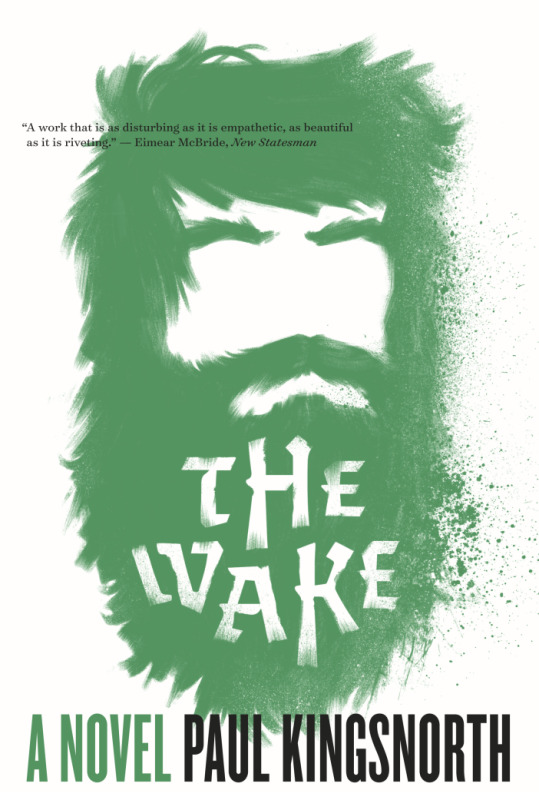
The Wake by Paul Kingsnorth
I think Kingsnorth has been outted as a sort of eco-fascist? I totally believe it, so feel free to skip this one. It's a historical novel set in England in 1066, as the Normans invade from France. It's written in a faux Middle English language and focuses on the lower classes and how they try to resist the invasion. A good reminder that "Medieval culture" (and especially the Renaissance as a time that "culture advanced") is often based on certain classes of society, such as rich people and/or men.
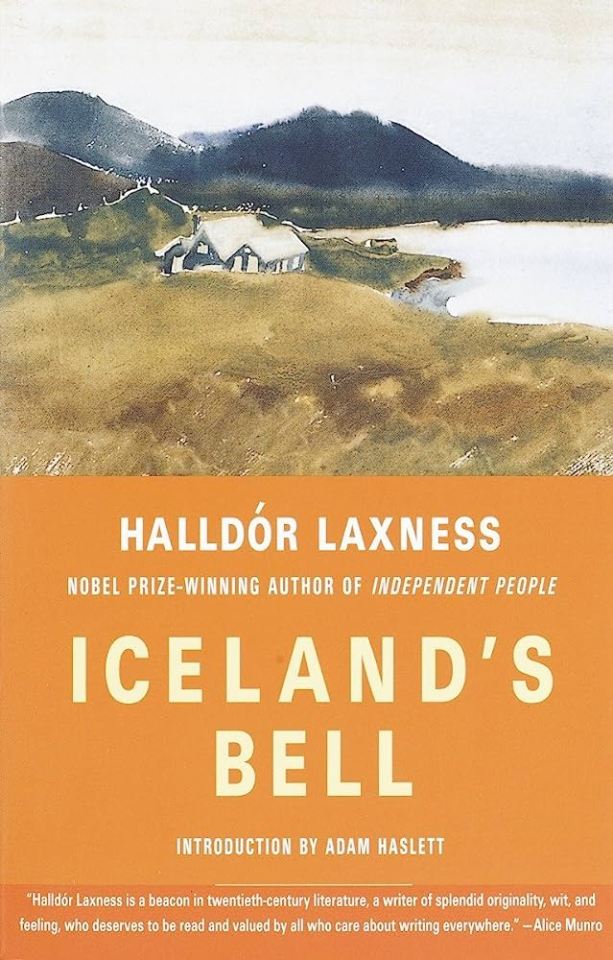
Iceland's Bell by Halldór Laxness
Speaking of how class intersects with technological advancement, this book is set in the 18th century, but it focuses on Iceland at a time when it was ruled by Denmark, and the lower classes there were under an enforced poverty. It's a book about how a rich Icelander was trying to recover the stories of his people in order to create a sense of national identity and resistance. But it's also a story about how a destitute man acts like a total weirdo when he's not allowed to fish in his own waters and is cut off from understanding his place in history.
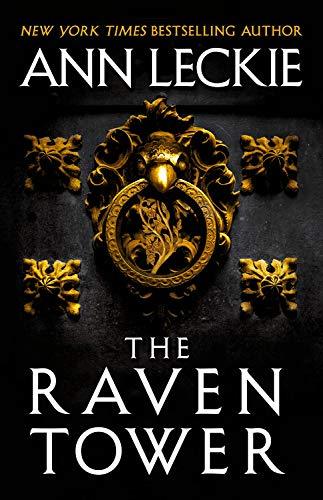
The Raven Tower by Anne Leckie
A big part of RuneQuest is people interacting with and enacting their gods. That's what this book is about! And it's about the strange vertigo that comes to people when they try to interact with the impossible timelines that gods exist on. Very good stuff.
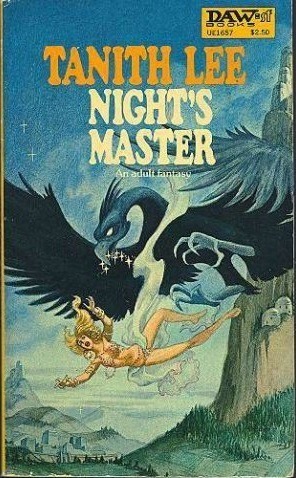
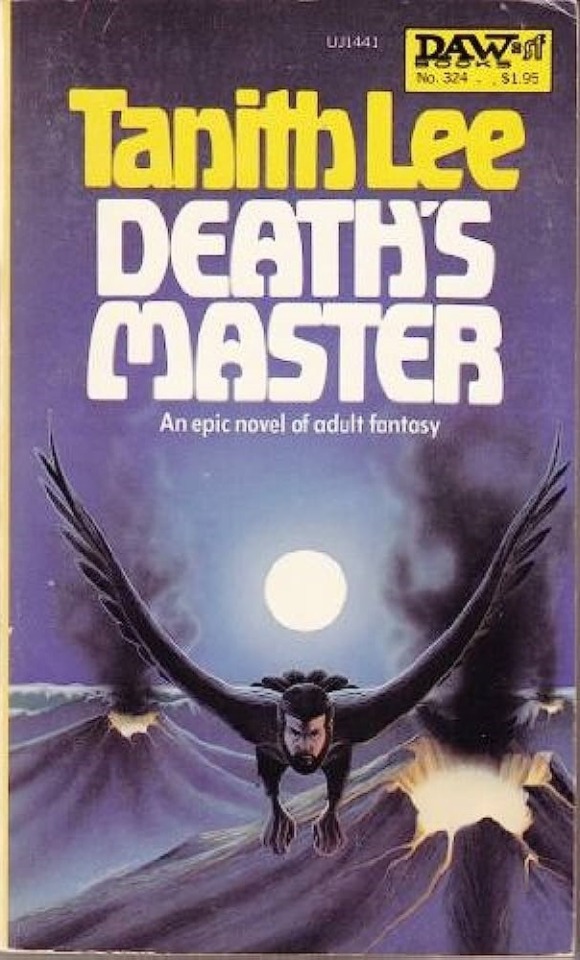
Night's Master and Death's Master by Tanith Lee
Ostensibly set on Earth back when it was flat and demons roamed the world, which is basically RuneQuest. Sort of like a series of hornier, gay bibles? With lots of gender fuckery, fun sex, and cool monsters.
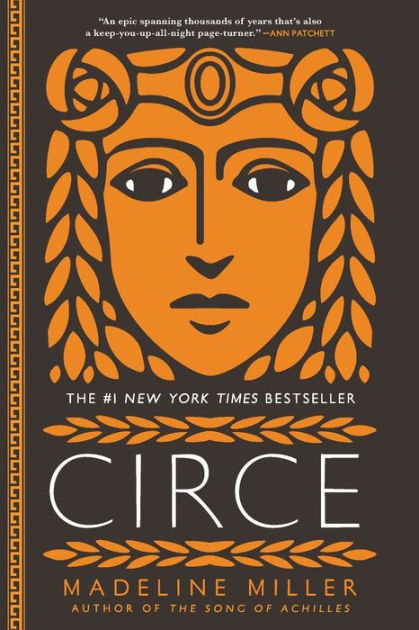
Circe by Madeline Miller
The story of the witch from The Odyssey, told from her point of view. Beautiful prose, tragic and beautiful characters, and a great share of mythical strangeness. Perfect if you want to learn how to run NPCs that are adversaries without being shallowly evil.
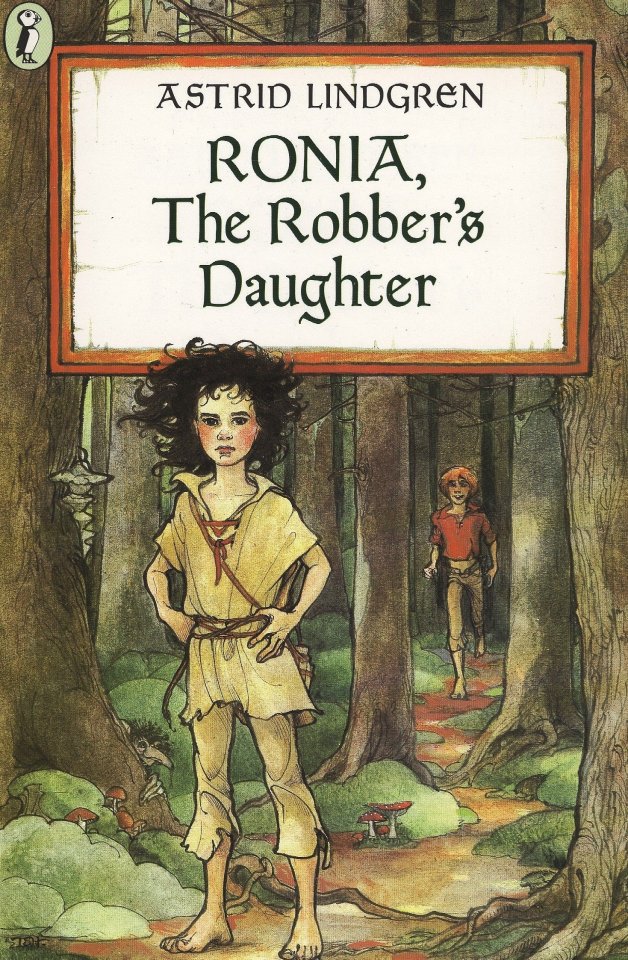
Ronia, the Robber's Daughter by Astrid Lindgren
Semi-Medieval again, but low class and vague enough that it could exist throughout ancient history. The daughter of a robber grows up in a tower full of robbers and generally has a wonderful time. Lots of weird monsters live in the woods, and there's a great starcrossed romance with someone from a rival robber gang. Perfect inspiration if you're running some cattle-raiding runs in RuneQuest; this is how to make robbers fun and sympathetic.
Read the book, watch the 1984 Swedish movie (which includes a great comedic scene of full-frontal dudity), and then watch the Studio Ghibli series.

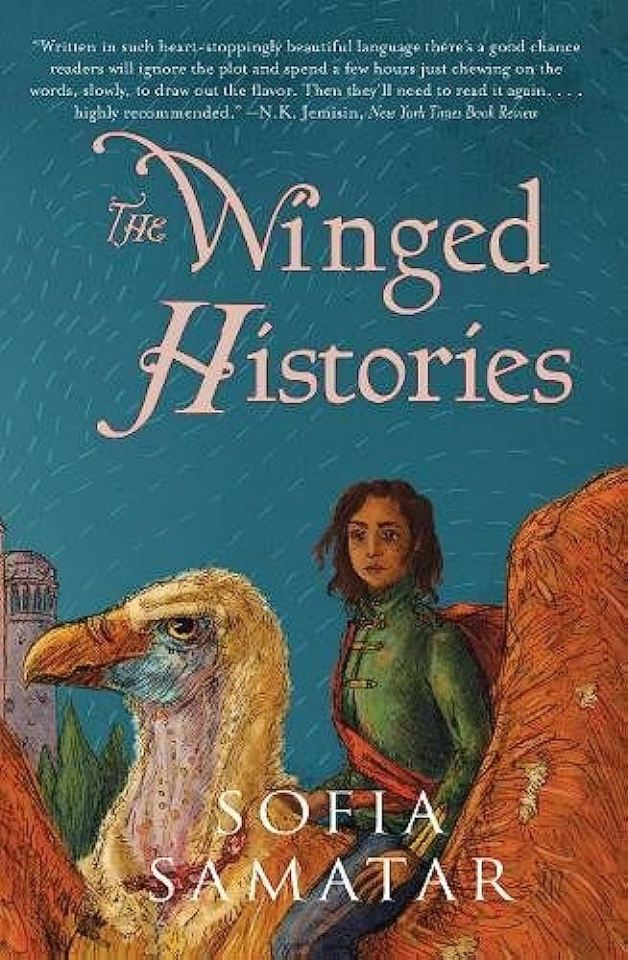
A Stranger in Olondria and The Winged Histories by Sofia Samatar
Set in a world of pepper farmers and religious fanatics who worship a mysterious inscribed stone, these books do a great job of showing how people might interact with religion, rival cults, and mystery rites. It also portrays literacy and learning to read in places where it's gated behind social gatekeeping. And once again, the prose is beautiful.
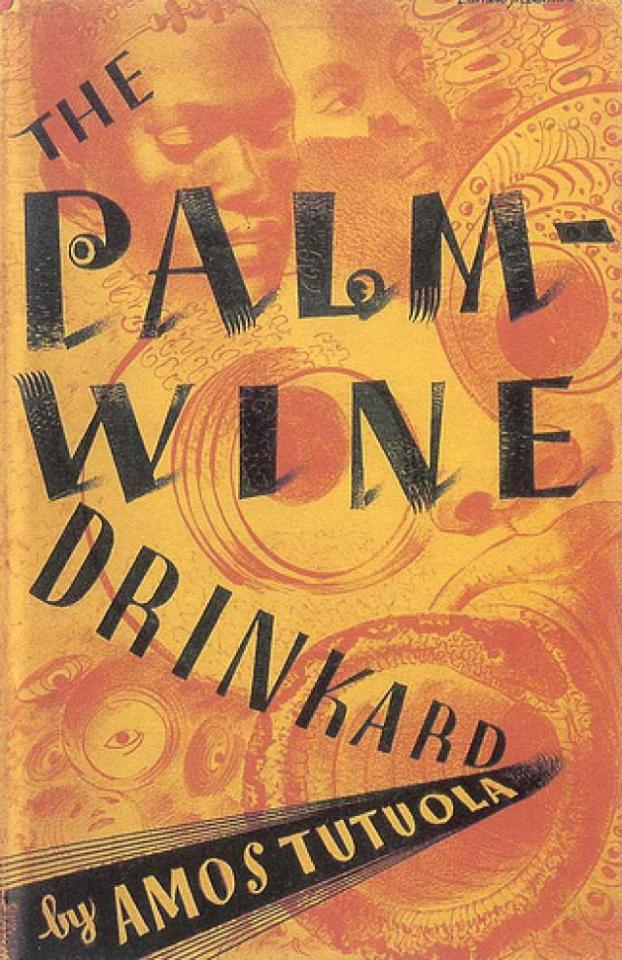
The Palm-Wine Drinkard by Amos Tutuola
The first African novel published in English outside of Africa, The Palm-Wine Drinkard is a funny, hallucinogenic story about getting drunk, stumbling through weird landscapes, and encountering fantastical spirits and people.
Tutuola also wrote My Life in the Bush of Ghosts, the inspiration for the famous(?) David Byrne/Brian Eno album. I haven't read it yet, but I'm keeping an eye out!
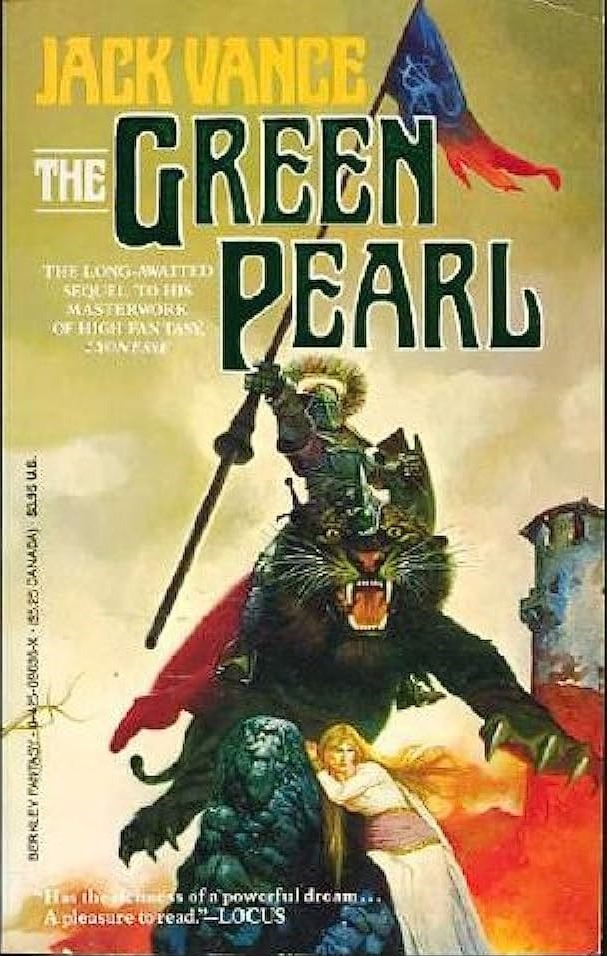
The Green Pearl by Jack Vance
This is a sequel to Lyonesse, which I haven't read because I love staring in the middle of things. Set around a mythical British Isles when Atlantis was still above the sea and part of the group of islands. Some great wizard shit, warring clans, romance, and a wizard whose name is fucking Shimrod (in case you need more convincing).
Those are my 20 novel recommendations! I'm gonna come back to add some nonfiction, comics, and myth resources for running games in fantastical ancient worlds. You can read SpeedRune, my ancient fantasy game, here.
239 notes
·
View notes
Text
Tagged by @sirenascelestiales for 2025 book bingo time [created by @batmanisagatewaydrug]
Literary Fiction: Many of the books from my BA studies list will probably make it here, I imagine. But if I had to pick one, I'd love to re-read The Great Gatsby by F. Scott Fitzgerald or read The Catcher in the Rye by J.D. Salinger.
Short Story Collection: I don’t think I’ve ever read anything in this category, so I’ll go with an internet suggestion - Dubliners by James Joyce.
Sequel: This one’s tough… I’m in the mood to re-read The Lost World by Michael Crichton.
Reread a Childhood Favorite: The Little Prince by Antoine de Saint-Exupéry, for sure! Another goal connected to this is to read it in French.
20th Century Speculative Fiction: 1984 by George Orwell.
Fantasy: A Game of Thrones and the whole A Song of Ice and Fire series by George R.R. Martin.
Published Before 1950: I’m itching to revisit some Shakespeare. I’d like to re-read A Midsummer Night’s Dream and finally read Hamlet.
Indie Publisher: I have no idea here - maybe someone could recommend something?
Graphic Novel, Comic Book, or Manga: Either some Darth Vader comic or my first try at manga.
Animal on the Cover: Life of Pi by Yann Martel.
Set in a Country You’ve Never Visited: Book’s Kitchen by Kim Jee-Hye, set in South Korea.
Science Fiction: Fahrenheit 451 by Ray Bradbury.
2025 Debut Author: Bochica by Carolina Flórez-Cerchiaro.
Memoir: Educated by Tara Westover.
Read a Zine & Make a Zine: I’m not familiar with this; I’ll need to do some research.
Essay Collection: On Immunity by Eula Biss.
2024 Award Winner: The Vegetarian by Han Kang.
Nonfiction, Learn Something New: The Plantagenets: The Kings and Queens Who Made England by Dan Jones.
Social Justice & Activism: Disability Visibility by Alice Wong.
Romance Novel: Outlander by Diana Gabaldon - or maybe something by Nora Roberts.
Read & Make a Recipe: Pierogi z kimchi. Kulinarna podróż po Korei by Wioleta Błazucka.
Horror: The Outsider by Stephen King.
Published in the Aughts (2000–2009): The Girl with the Dragon Tattoo by Stieg Larsson.
Historical Fiction: The Name of the Rose by Umberto Eco.
Bookseller or Librarian Recommendation: I haven’t picked anything here yet.
It was so hard to choose, but also so much fun! Thank you for tagging me!
I’d love to create a moodboard for some of my 9 upcoming books, but I think I’ll save it for later.
If you want to do this (though no pressure): @quietpainter @profiterole-reads @en-busca-de-mi-ikigai-blog + whoever wants to join!
14 notes
·
View notes
Text
One Hundred Books
Decided to make this list in order to include in one post all the books that I found to be worth reading and would recommend to others. They're not in a specific order:
The Book Thief by Markus Zusak
Mrs. Dalloway by Virginia Woolf
Murder on the Orient Express by Agatha Christie
Dubliners by James Joyce
A Jounal of the Plague Year by Daniel Defoe
One Hundred Years of Solitude by Gabriel Garcia Marquez
Girl with a Pearl Earring by Tracy Chevalier
Art of War by Sun Tzu
The Trial by Kafka
Metamorphosis by Kafka
The Diary of a Young Girl by Anne Frank
Little Women by Louisa May Alcott
Jane Eyre by Charlotte Brontë
Frankenstein by Mary Shelley
The Picture of Dorian Gray by Oscar Wilde
Dracula by Bram Stocker
The Phantom of the Opera by Gaston Leroux
1984 by George Orwell
Animal Farm by George Orwell
And Then There Were None by Agatha Christie
To Kill a Mockingbird by Harper Lee
Lord of the Flies by William Golding
Madame Bovary by Gustave Flaubert
Dune by Frank Herbert
Kafka on the Shore by Haruki Murakami
Crime and Punishment by Dostoievski
Notes from the Underground by Dostoievski
Lolita by Vladimir Nabokov
The Count of Monte Cristo by Alexandre Dumas
The Pianist by Władisław Szpilman
Don Quixote by Miquel de Cervantes
East of Eden by John Steinbeck
The Divine Comedy by Dante Alighieri
Doctor Faustus by Thomas Mann
The Idiot by Dostoievski
Of Mice and Men by John Steinbeck
The Insulted and Humiliated by Dostoievski
Foundation by Isaac Asimov
I, Robot by Isaac Asimov
A Gentleman in Moscow by Amor Towles
Faust by Johann Wolfgang von Goethe
The Master and Margarita by Mikhail Bulgakov
Moby-Dick by Herman Meville
The Brothers Karamazov by Dostoievski
The Call of Cthulhu by Lovecraft
Dagon and other Macabre Tells by Lovecraft
The Prince by Niccolo Machiavelli
Memoirs of Hadrian by Marguerite Yourcenar
The Shining by Stephen King
The Decameron by Giovanni Boccaccio
The Name of the Rose by Umberto Eco
The Enlightened Cave by Max Blecher
Dr. Jekyll and Mr. Hyde by Robert Louis Stevenson
The God Factory by Karel Čapek
The Tongue Set Free by Elias Canetti
Brave New World by Aldous Huxley
I Have No Mouth And I Must Scream by Harlan Ellison
No Longer Human by Osamu Dazai
A Clockwork Orange by Anthony Burgess
Selected Poems by Jorge Louis Borges
The Prague Cemetery by Umberto Eco
Drive Your Plow Over the Bones of the Dead by Olga Tokarczuk
The Setting Sun by Osamu Dazai
The Stranger by Albert Camus
The Plague by Albert Camus
Carrie by Stephen King
Fight Club by Chuck Palahniuk
The Alchemist by Paulo Coelho
Notre Dame of Paris by Victor Hugo
Catch 22 by Joseph Heller
American Psycho by Bret Easton Ellis
Gone Girl by Gillian Flynn
The Iliad by Homer
The Odyssey by Homer
Wuthering Heights by Emily Brontë
The Bell Jar by Sylvia Plath
The Tell-Tale Heart and other Writings by Edgar Allan Poe
Fahrenheit 451 by Ray Bradbury
Oliver Twist by Charles Dickens
Hercule Poirot's Christmas by Agatha Christie
The Sound and the Fury by William Faulkner
V for Vendetta by Alan Moore
The Red and the Black by Stendhal
The Queen's Gambit by Walter Tevis
It by Stephen King
Pet Sematary by Stephen King
Anna Karenina by Leo Tolstoy
The Death of Ivan Ilych by Leo Tolstoy
La Dame aux Camélias by Alexandre Dumas fils
Pride and Predjudice by Jane Austen
Northanger Abbey by Jane Austen
Persuasion by Jane Austen
Sense and Sensibility by Jane Austen
The Old Man and the Sea by Ernest Hemingway
The Age of Innocence by Edith Wharton
North and South by Elizabeth Gaskell
A Game of Thrones by George R.R. Martin
The Fellowship of the Ring by J.R.R. Tolkien
The Return of Sherlock Holmes by Sir Arthur Conan Doyle
1Q84 by Haruki Murakami
15 notes
·
View notes
Note
Do you have any thoughts about how to do fascism in Arthuriana? Like partially inspired by T.H. White I was thinking of writing Lucius as a sort of combination of a 30s Dictator and the crusading ideal that you get in Medieval literature, which of course looks quite repugnant by today's standards.
I've been turning this over in my head for a few days as it's a very interesting question! To start, let me talk about two versions that did it to different ends.
As you mentioned, in The Once and Future King, Mordred becomes a Hitler (or British fascist) analogue, and predicates his rise to power on persecuting Jews and Moors. I wasn't sure how I felt about this at first, but after thinking it over, I realized that World War II was the defining trauma of White's generation, and if he's going to write about a political faction destroying Britain and plunging it into apocalyptic war, how could they not be fascists? (Plus I got a fanfic out of it.)
On the other hand, in the 2004 King Arthur movie, which I actually overall enjoyed, they made Cerdic the Saxon their fascist villain. He orders all the Celtic women killed so that his men won't breed with them and produce more of their disgusting race...which, if you know anything about the Saxon invasion, is more or less the opposite of how it went. It's like a darker version of the 'tightlacing into dresses without waists' scene in Bridgerton- I'm not a stickler for historical accuracy, but I need it to at least make sense in the world that's being presented to me on screen.
So, what's the deal with fascism? I'll let Umberto Eco give the greater picture, but when I think of fascist villains, I think of three things- an "us" who is great, a "them" who are simultaneously weak and strong, and a mythic "good old days" that never really existed. Given that Arthuriana is a mishmash of time periods and ethnic groups as it is, you have a lot to choose from, both in terms of making it make sense in universe, and in terms of it feeling resonant to a 21st century reader.
If Lucius is your villain (a good choice, I think, he's not used as much as he could be) then you're positioning the "us" as either Rome or Italy. I say "either" because Malory et al had him as an anachronistic Roman emperor, but the Squires Tales series made the interesting choice of him being an Italian prince styling himself the modern Caesar. I'm not Italian, but I think this is something that politicians from Mussolini to Berlusconi have tried to position themselves as to some extent, so I think there's room to explore there.
If "us" is Rome, then "them" must be wherever they're trying to conquer. If you've ever played Fallout New Vegas, the Cosplay Roman Fascists there have "The West" as their enemy, with speeches about how they're doing a great job unifying all the disparate tribes but are hindered by the "degenerates" of the NCR and New Vegas. There are certainly tribes to go around in the British isles, any of which could be your "them" or your "future us, once then kneel." The good old days were the height of the Empire, of course, and depending on whether your Lucius is a Catholic or a Roman pagan, he can call upon a huge history of grandiose mythology to support himself.
If Mordred is your villain, then both his mythic past and his "us" could harken back to the glory days of King Uther, back when the Britons were strong against the Saxons and kings were revered for their might, not their codes of honor. The song Fie on Goodness in Camelot is dark comedy because nobody really talks like that about themselves- but they could voice the same sentiments in different language. "Them" could be Jews and Moors as in T. H. White, but you can pick any influence from the Picts to the Gauls as the simultaneously weak and strong enemy who turned Arthur into a man too soft to lead.
"Uther was a barbarian because he stole another man's wife," Mordred might say, "but Arthur claims to be civilized because he gives his away!"
And then there's that old medieval standbye- the crusades. Just what the hell time period Arthuriana takes place in changes with the writer, but having your villain either outright be a Crusader King or modeling him on one would give you a chilling model to work with. Slaughter and pillage all who get in your way, and you can justify it with ideology. Send every available one of your own men and boys to their deaths and you can do the same. And if the war never ends, so much the better, as your wartime powers never go away.
Thank you for this question, and I'll be very eager to see what you come up with!
29 notes
·
View notes
Text
Dieci anni di monarchia assoluta. (...) Poi a gennaio 2015, King George aveva lasciato il trono perché proprio non ce la faceva più. (...) Altrimenti, potete starne certi, sarebbe rimasto ancora là (...) a comandare le operazioni, a fare e disfare governi, a organizzare ribaltoni (...). E anche dopo, fuori dalla reggia (...) per un bel po' si è fatto sentire: (a)ltro che pensionato. (...) quella di Giorgio Napolitano non è stata una presidenza leggera, neutra, notarile, ma sempre al limite e talvolta debordante. Come banale non è stata la sua intera vita pubblica. (...) Giorgio Napolitano era nato a Napoli (...). Figlio di un avvocato (...), studi classici, (...). Elegante, sobrio, parlava un inglese perfetto: nel Pci per le sue posizioni lo chiamavano l'amerikano. Oppure re Umberto (...). (A)ll'università si era iscritto al Gruppo Universitari Fascisti (...), nel 194(5) entrò nel Pci. Deputato dal 1953, (...), diventò presto uno degli esponenti di maggior peso dell'ala riformista, i cosiddetti miglioristi (...). (A)lla morte di Enrico Berlinguer (...) gli fu preferito (come segretario del Partito) il più (...) ortodosso Alessandro Natta. (...) Nel 1992 venne eletto presidente della Camera. (...) Nel 1996 Romano Prodi lo scelse come ministro degli Interni (...). Dopo la caduta del governo del Professore, (...) Ciampi lo nominò senatore a vita. Il dieci maggio 2006, (...) superando Massimo D'Alema, venne eletto undicesimo presidente della Repubblica italiana. (...) Due anni dopo Silvio Berlusconi rivinse le elezioni e per Napolitano si aprì un difficile periodo di coabitazione. Seguendo le orme di Ciampi, re Giorgio cercava di limitare il Cav con la moral suasion e successi alterni. (...) (Ne)l 2011 Berlusconi, indebolito da alcune defenzioni nella maggioranza, malvisto da Francia e Germania e (messo) sotto pressione con lo spread (...), fu fortemente convinto a passare la mano a Mario Monti, che nel frattempo King George aveva prontamente nominato senatore a vita. Regista dell'operazione, voluta da Bruxelles (Parigi e Berlino) e ritenuta un golpe (...), Napolitano. Monti e i suoi tecnici governarono un annetto (...). Nel 2013 nuove elezioni con la vittoria dimezzata del Pd (e il trionfo del m5s) (...). Il sistema si bloccò. (...) Senza governo, senza un accordo, senza un nome per la presidenza: (l')ingorgo istituzionale (...). Il 20 aprile 2013 nacque il Giorgio II. Tre giorni più tardi, dopo un discorso di fuoco di Napolitano alle Camere, Enrico Letta si insediò a Palazzo Chigi a capo di un esecutivo di unità nazionale (...). Letta tirò avanti per un po', finché il Quirinale non lo sostituì con l'astro nascente Matteo Renzi. Per Napolitano un paio d'anni (di benevolo controllo remoto), fino alle dimissioni nel 2015. Una lunga monarchia condizionata dalla crisi economica e dal vuoto di potere della politica che il Re della Repubblica ha riempito, segnata pure da ruvidi scontri tra Colle e magistratura, fatta di tanti rimproveri ai giudici «protagonisti», culminata con l'intercettazione «casuale» di un colloquio tra il presidente e Nicola Mancino e il conflitto di attribuzione con la procura di Palermo.(...)
Ritratto accurato di un AVVERSARIO ben più lucido e pericoloso di tutto il resto della masnada idealista autoinculante, cui rivolgere RIP e onesto omaggio - ha combattuto efficacemente; di M.Scafi su https://www.ilgiornale.it/news/politica/record-e-giravolte-politico-che-ha-segnato-nostra-repubblica-2214770.html
L'iscritto al Guf che diventa comunista, da Kruschev all'Amerika dei Dems., l'Internazionalista che diventa Gauleiter di Franza e Cermania, la difesa del proletariato che si fa golpe di Palazzo : medieval machiavellico (è un complimento), ma quale vita ricca di contraddizioni, fu sempre perfettamente lucido e fedele alla linea nella sua vita.
79 notes
·
View notes
Text

Stencil in Palermo of Gaetano Bresci, an Italian American anarchist who killed King Umberto I of Italy in Monza on July 29, 1900.
Gaetano carried out the attack in revenge for the massacre of 90 civilians who were protesting a rise in bread prices at the Kings palace in 1898.
135 notes
·
View notes
Text
I've been tagged by the wonderful @learning-to-think for the 25 books for 2025 challenge, so here it goes!
I've read 30 books in 2024, which is way more than I anticipated, but which also means that I might actually get to 25 this year :)
🥐 for french books (french authors and translated books), 💂 for english books
1. The priory of the orange tree, second part of the first book, Samantha Shannon, 2019 (owned) 🥐
2. A Prayer for the Crown-Shy, Becky Chambers, 2022 (gift from Christmas) 🥐
3. Carrie Soto is Back, Taylor Jenkins Reid, 2022
4. The Outsider, Stephen King, 2018 (owned, currently reading) 🥐
5. Vivantes, Clara Ysé, 2024 (gifted to my sister on Christmas and i'm nothing if not an opportunist) 🥐
6. Le dernier jour d'un condamné, Victor Hugo, 1829 (owned) 🥐
7. Wicked, Gregory Maguire, 1995 (will borrow from a friend) 💂
8. Before the coffee gets cold, Toshikazu Kawaguchi, 2015 (will borrow from my flatmate) 💂
9. The name of the rose, Umberto Eco, 1980 (owned) 🥐
10. Nos amours radicales, coll, 2021 (owned, currently reading) 🥐
11. Toworrow, and toworrow, and tomorrow, Gabrielle Zevin, 2022 (owned) 💂
12. 4% en théorie, Mathias Chaillot, (owned) 🥐
13. Fairyland, Alysia Abbott, 2013 (owned) 🥐
14. Sois jeune et tais toi, Salomé Saqué, 2023 (will borrow from sister) 🥐
15. L'abolition - le combat de Robert Badinter, Marie Gloris Bardiaux-Vaïante et Malo Kerfriden, 2019 (owned) 🥐
16. The Women of Troy, Pat Barker, 2021
17. Les seigneurs de Bohen, Estelle Faye, 2017 (will borrow from other flatmate) 🥐
18. Project Hail Mary, Andy Weir, 2021 (gifted to my father, see 5.) 🥐
19. The Silence of the Lambs, Thomas Harris, 1988
20. Génération Lou!, Julien Neel, 2024 (gift from my birthday, currently reading) 🥐
21. The Trial, Franz Kafka, 1925 (borrowed from a friend) 🥐
22. To Kill a Mockingbird, Harper Lee, 1960 (owned) 💂
23. L'étranger, Albert Camus, 1942 (owned)🥐
24. My favorite thing is Monsters (book two), Emil Ferris, 2024 (gifted to my sister, see 5.) 🥐
25. A Good Girl's Guide to Murder, Holly Jackson, 2019 (gifted to my brother, see 5.) 💂
One of my goals is to actually read books I own, which is why I have most of the books on this list, but I also have 80 bucks on my pass culture that I need to spend before the end of the month so what I read might be very far from this list.
5 notes
·
View notes